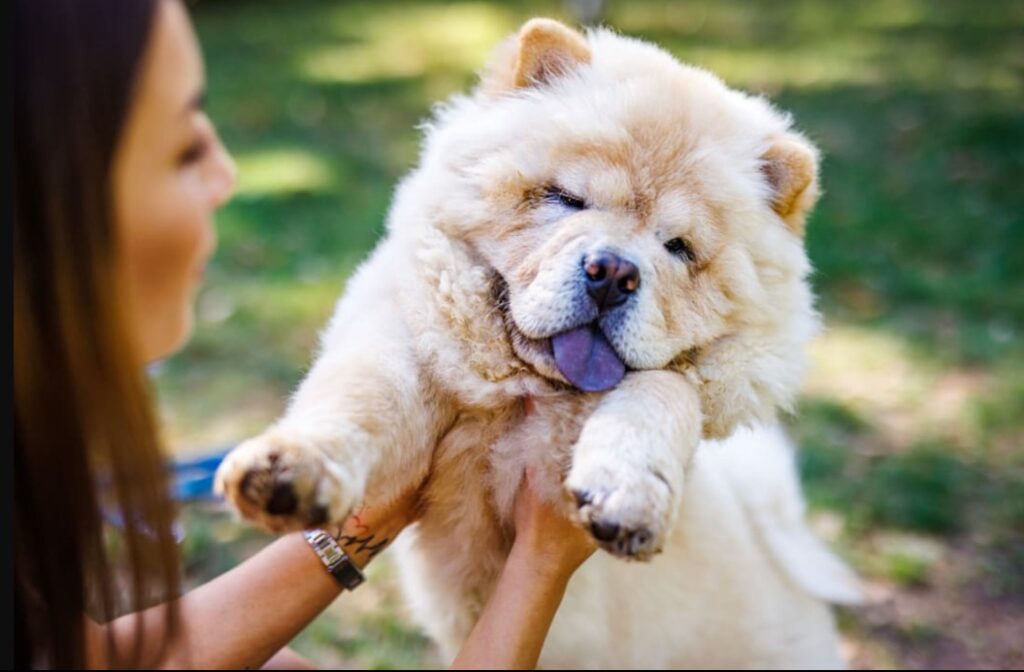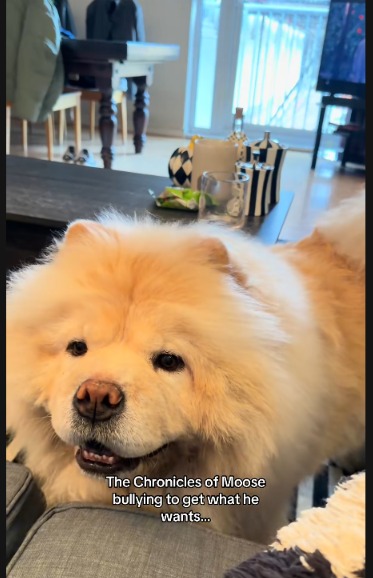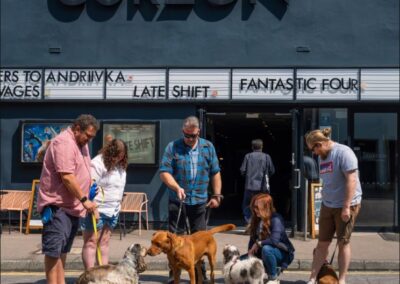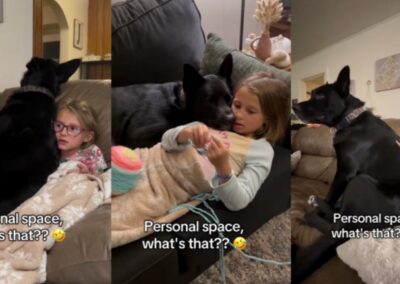
Forget the dog that waits patiently for your hand to drop the toy or the treat. Meet Moose, a cream-colored Chow whose mission is clear: playtime starts now—or else.
This isn’t the typical “sit and stay” gig. Moose goes full boss. He bullies his human into giving him the fun he knows he’s owed.
If you know the Chow breed, you know there’s always something behind those regal looks. They’re dignified, aloof—sometimes almost aristocratic.
But under that composure? A playful spark waiting for the right moment to fire. And Moose? He found the moment, every day.
His human recorded the scene: a couch, a living room, a toy in hand—or maybe the toy’s in the human’s hand.
Or maybe the toy’s not in the hand, because that’s Moose’s style. He doesn’t wait. He leans in. He stares down. He nudges.
He uses those thick furred paws, his plumed tail swishing like a metronome set on “Now.”

And it works. Because his human can’t resist. How do you refuse a dog who flips the script and says, “Enough waiting—time to play”?
In the video, Moose holds the pose: ears up, eyes locked, toy strategically placed. His human hesitates—maybe working, maybe reading a screen.
Moose doesn’t care. He moves in. The toy drops. He gives a slight growl of “Finally?” The human relents. The game begins.
That moment hits because it’s so familiar: you buy a dog because you love the cuddles and the goofy moments. But the dog you get?
They’re occasionally running the show. They’re scheduling the playtime. They’re demanding love, attention, movement. And you’re happy to comply.
This story also teaches something huge: You don’t have to possess a high-energy breed to get big energy.
Moose is eating from the “calm, regal dog” category—but his play-demanding attitude? Elite. It shows personality flicking on when you least expect it.
That a breed known for composed dignity can turn into a playful task-master.
Here’s what every dog lover should take away: If your dog ever looks at you with what seems like a silent command—stop what you’re doing and play—maybe the real boss in the house just walked in.
Maybe the toy isn’t optional—it’s required. Because for some dogs, fun isn’t a bonus. It’s the job.
And for Moose? His job is simple: get the human up. Get the toy. Make the movement. Promise the surprise.
Because when the human finally caves, the toy flies, tail wags, laughter echoes. And the living room turns into a playground.
Moose’s human knows this intimately now. They’ve learned the rhythm. Playtime isn’t a reward—it’s the expectation.
They’ve learned that sometimes being “bullied” by your dog into fun is the best kind of day. That when he leans in, you lean in back.
And all the dignity? It’s just the mask. Behind it? A dog who wants joy. And maybe he’s not taking “later” for an answer.
So the next time your dog stares you down with intent—even in the calmest breed—don’t ignore it. Maybe it’s not misbehavior.
Maybe it’s command. Maybe it’s a reminder that they’re alive. They’re here. They’re ready.
And maybe they’ve been waiting until you listened.
Because Moose doesn’t try to ask nicely. He knows better.
And now you know: when the cream Chow dashes in with toy in mouth, the real question isn’t whether to play.
It’s why you didn’t start earlier.




Thank you for your sharing. I am worried that I lack creative ideas. It is your article that makes me full of hope. Thank you. But, I have a question, can you help me? https://www.binance.info/register?ref=IXBIAFVY